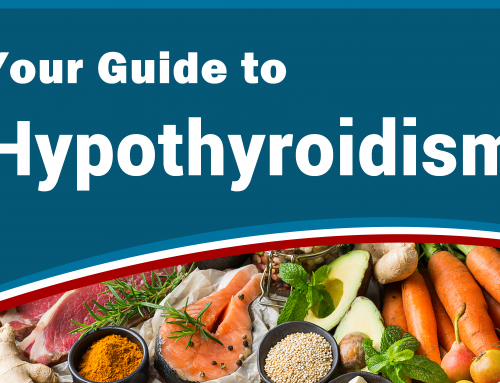Besides obesity, one lifestyle disorder that is commonly increasing among young females is PCOS. Also known as Polycystic Ovarian Syndrome, this syndrome can occur in any women of reproductive age. With rapid deterioration of lifestyle and increase in stress levels, there has been a sudden rise in PCOS cases across the world. This disorder can cause difficulty in getting pregnant as well as other issues like weight gain, skin irritation, hormonal imbalances, hair loss, and growth of additional hair on body and face. If neglected, PCOS can lead to other severe diseases.
But the good thing is that you can actually manage PCOS and keep all minor and major health issues at bay. Though medication for PCOS is available, but it can offer symptomatic and temporary relief and if followed aggressively it can lead to long-term side effects.
Hence, the best way to manage it is reduce stress levels and practice regular exercise and healthy diet. A combined regimen of these practices can help you easily combat most of the symptoms of PCOS.
While an exercise can be as simple as a morning walk of 45 minutes every day, you need to focus hard on your diet. Hence, read this post to know about the best Indian diet for PCOS to live a healthy and fit life.
So, let’s delve into the details!
What is PCOS?
The PCOS problem occurs when cysts develop on the ovaries. Such a condition leads to major hormonal imbalances, which result in further health issues. The prominent result of PCOS is increased in the body’s resistance to insulin, which implies that the body is not able to use insulin properly. For this reason, over time, most of the females with untreated PCOS develop diabetes.
The most common symptom of this ailment is irregular periods. If a female experiences this problem at a very early age, then it is best to get a diagnosed done for PCOS.
What Causes PCOS?
Though these are not the only causes of PCOS, they are the most prominent ones.
- Hormonal imbalances
- Stress
- Excessive consumption of Junk Food
- Compromised immunity
- Sedentary lifestyle
- Side effect from any other ailment
What are Common Symptoms of PCOS?
A person with PCOS will experience these symptoms from a very early age:
- Irregular periods
- An extreme feeling of hunger even after proper meals
- Excessive growth of hair on unwanted areas of the body like face, breast
- Infertility
- Uncontrolled acne
- Dips in blood pressure and blood sugar levels
- Problem losing weight
The problem of PCOS is difficult to manage, but not impossible. Well, it is always best to get a customized diet plan outlined for you from a health and nutritionist expert. But if you are a beginner and looking for a simple diet plan for PCOS then check the one mentioned right below. This diet plan is convenient to prepare and easy to follow.
Indian Diet Plans for PCOS
Early Morning: 1 glass warm water with half squeezed lemon juice / 1 glass juice of bottle gourd, cucumber, mint
Exercise: A walk or workout for at least 45 minutes
Breakfast: 1 cup Masala Daliya or Broken Wheat / 1 cup Upma cooked with vegetables/ 1 cup Poha with vegetables + 1 glass warm milk
Mid-morning: 1 fruit like apple, papaya, pomegranate, orange, or seasonal fruit. Avoid consuming banana and chickoo.
Lunch: 2 chapattis, 1 cup dal, 1 bowl yogurt, 1 cup brown rice, 1 cup green salad / 2 chapattis, 1 cup paneer vegetable, 1 bowl yogurt, 1 cup brown rice, 1 cup green salad
Mid-afternoon: 2 egg whites / 1 medium glass buttermilk / 1 cup green tea
Evening Snack: 1 bowl of fruit salad / 1 cup sprouts salad
Exercise (optional): If you have time then you can plan a walk or workout again right after your evening snack.
Late Evening (optional): 1 cup soup of your choice (vegetable, sweet corn, tomato)
Dinner: 2 medium sized chapattis, 1 cup vegetable, 1 bowl salad including tomato, lettuce, onions, bell peppers
Bed Time: 1 glass warm water
You can follow this diet plan to ensure that your body’s nutritional requirements are met to the fullest and you do not end up consuming unhealthy products filled with fats.
But this is not enough! There are some guidelines or norms too that you ought to follow to manage your PCOS problem with ease.
Important Dietary Norms for PCOS
- Stay Away from Sugar
The biggest challenge with PCOS is lack of resistance against insulin. The best way to deal with it is to give up sugar completely. People with resistance to insulin may experience a drastic and sudden increase in blood glucose level as soon as they consume any sugar-based product.
From cookies, cakes, ice-cream, doughnuts, to all Indian desserts, you have to avoid them all. Alternatively, you can use jaggery or honey to prepare sweet recipes for yourself.
- Restrict Intake of Carbohydrates
Being an Indian it is difficult to stay away or even restrict carbohydrates. It is because most of our food elements like paranthas, chapattis, and rice are made of carbohydrates which turn into sugar upon digestion. But a high carbohydrate diet is not good for people with PCOS.
If you cannot restrict carbohydrate consumption completely, you can make wise choices. Pick healthy carbohydrates options like healthy grains, fruits, seeds, and vegetables rather than sticking to unhealthy carbohydrates. Also, if you cannot do without chapattis, then stick to multigrain atta.
- Cut Back Processed Foods
Processed foods contain excessive levels of sodium, sugars, preservatives, additives, and unhealthy fats. Intake of these items can lead to inflammation. Hence, you must cut back on items like cookies, chips, energy bars, breakfast cereals, biscuits, processed meats, and packaged fruit juices. Basically, you just have to keep away from anything that comes out in a packet or from a box.
You can start with this new change in simple ways. For example, pick healthy items from groceries like legumes, fresh fruits, meats, and vegetables. Also, plan your weekly menu and avoid foods that are not good for your health.
- Have Complete Understanding of Fats
Don’t fall under the norm that fats are bad for you. There are some healthy fats options available, which you can consume like hydrogenated fats and partially-hydrogenated fats. Also, excessive consumption of omega-6 fatty acids can result in inflammation. Therefore, switch to vegetable oils like sunflower oil and soy oil that are rich in omega-3 fatty acids.
Further, if you are afraid of ghee, then don’t be. It is rather healthier than vegetable oils. Healthier fats are needed even by people with PCOS, so stick to options like olive oil, coconut oil, seeds, nuts, and oily fish to meet the requirement.
- Follow a Whole Food Diet
Whole-food diet is also called as clean eating. It is because this diet includes only fresh vegetables, fruits, lean meat, legumes, and whole grains. It is an extremely nourishing diet holding strong anti-inflammatory properties.
This diet is rich in fiber and makes you feel full longer. Items like whole grains, blueberries, bananas, quinoa, okra, broccoli, pumpkin, lettuce, spinach, eggplant, cilantro, are rich in antioxidants, minerals, and vitamins. Include them in your daily diet.
- Eat Plenty of Water
One common mistake that people with PCOS make is to avoid drinking enough water. PCOS can result in bloating and drinking warm water can help you manage your body weight. Bloating results from water retention and if you are drinking abundant water then it will gently flush out excess water as well as sodium from your body.
This will also flush out harmful toxins from the body and boost metabolism. But avoid drinking water after meals.
- Stick to Natural Probiotics
Your weight loss is highly affected by changes in the gut microbiome. Even, this is responsible for body fat, inflammation, and metabolism. For this reason, it is essential to include healthy probiotics in your diet.
Increase consumption of lassi, yogurt, and buttermilk. You can also consume foods like idlis, dhokla, and dosas as they contain live healthy bacteria that are good for gut’s health.
- Reduce Intake of Dairy Products
You may not have heard this before, but it’s true. Dairy products are not ideal for women experiencing PCOS. It is because dairy products include high levels of insulin growth factor. You can either consume or drink a glass of warm milk at breakfast.
- Prefer Consuming Foods with Low Glycemic Index
Foods with a high glycemic index can increase your insulin levels. This can cause further weight gain and lead to other ailments such as type-2 diabetes. Avoid the consumption of foods like rice, flour, watermelon, white potatoes, cornflakes, and doughnuts.
You can stick consuming items like legumes, oatmeal, soy milk, low-fat yogurt, apple juice, carrot juice, whole grain cereals, multigrain bread, and pineapple juice.
- Avoid Packaged or Processed Foods
Packaged or processed foods contain high levels of flavors, chemicals, preservatives, and additives. Consumption of such items can result in hormonal imbalance and boost insulin resistance in the body.
The best way to combat PCOS is to follow a healthy lifestyle and practice good eating habits. While this post talks everything about a good diet for PCOS, you also need to follow a proper exercise regimen. Over time, your PCOS problem will subside and you too will be able to live healthily and happily.








